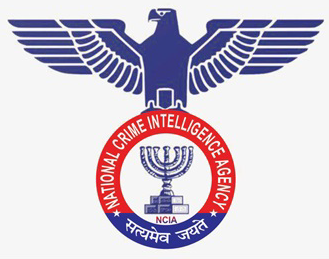CREDIT RATING AGENCY
NBFC Company, Chit Fund Company, Core Investment, Microfinance, Venture Capital, Prepaid Wallet License, Merchant Banking, Insurance Company, Nidhi Company, Registrar & Transfer Agent.
3000 +
Happy clients
300 +
Advocate, CA, CS
10 +
Associates Offices
Request A Call Back
About Credit Rating Agency
What is Credit Rating Agency: The importance of credit rating has grown widely among the investors and the Indian financial market in the past two decades. In simple words, it can be defined as an opinion on the credit quality of a firm i.e. the ability of debt issuing firm to service the instrument. It establishes a link between risk and returns by doing the calculation on the basis of its financial history, current assets, and liabilities. An investor or any other interested person uses the rating to assess the risk level and compares the offered rate of return with his expected rate of return.

- A Public Financial Institution
- A Scheduled Commercial Bank
- Foreign Bank Operating in India with RBI approval
- A foreign Credit Rating Agency having at least five years’ experience in rating securities and recognized by the laws for the time being in force in the country of its incorporation.
- The board before granting certificate satisfy itself that the applicant must comply with the following norms:
- The applicant must be a company registered under Companies act, 2013 with the main object of carrying any specified rating activity in its Memorandum of Association (MOA).
- Minimum net worth of rupees five crores
- The infrastructure must be adequate which enables it to provide rating services in accordance with the provisions of the Act and Regulations
- Grant of the certificate should be in the interest of the investors and the securities market.
- The applicant must be a fit and proper person as per the criteria laid down in the regulations.
- Such other requirements as prescribed in the regulations.
- If the Board comes to the conclusion that the application is not complete in all respects and also does not confirms to the requirements specified in regulations and instructions specified in Form-A, the application shall be rejected by the Board. Before rejecting any such application, an opportunity to remove the discrepancies, within thirty days from the date of receipt of communication, must be given.
- The Board may even ask the applicant to furnish such further information or clarification as the Board may consider necessary and may also ask the applicant to appear in person if required.
- After being satisfied in all respects, the Board shall send an intimation to the applicant for the same and on receipt of payment of the requisite fees, shall grant a certificate of registration in Form B, as specified in the regulations.
- The certificate of Registration remains valid unless it is suspended or canceled by the Board.
- The analysis made by these rating agencies provide investor with valuable insights which facilitate their decision to further research
History of Credit Rating: Credit Rating firstly emerged in India in 1940’s following the financial crisis of 1937 in New York and subsequent formation of Standard’s & Poor’ in 1941.In the 1970s, number of Credit Rating companies started their operations all over the world. In India, the trend came in 1987, with the establishment of CRISIL. Its scope got widened in 1991 & 1993 with the establishment of ICRA & CARE respectively. In private sector, first credit rating institution was established in 1995 named as Duffs & Phelps Credit Rating India Private Ltd.
Following Points May be Noted in Respect of Credit Rating:
- It is an assessment of a borrower’s willingness and ability to repay the rated obligation in accordance with its terms and conditions.
- It is only an opinion but not a recommendation to purchase, sell, or hold a borrower’s security.
- These agencies change ratings only for significant and permanent changes in a company’s financial and operating performances
- These agencies only rate securities and not issuers.
Credit Rating Agencies: The Credit Rating Agencies (CRA) are one of capital market intermediaries. It is a body corporate, which is involved in the business of rating of securities offered by way of a public issue or right issue. They rate the debtors on the basis of their ability to pay back the debt in a timely manner. They rate large-scale borrowers, whether companies or government bodies and basically, they provide credit ratings to only organizations and not individuals consumers. The assessed entities may be in the form of companies, special purpose entities, state governments, local governmental bodies, non-profit organizations and even countries.
Regulation of Credit Rating Agency:
It is regulated under the framework of SEBI under SEBI (Credit Rating Agencies) Regulations, 1999. It is mandatory to get itself registered under SEBI before commencing the activities of Credit Rating. These regulations cover only the rating of securities not of fixed deposits, foreign exchange, real estates etc.
Process of registration under SEBI as explained below:
- The person proposing to commence any activity as a credit rating agency has to apply to the Board in the form of application in Form A as prescribed in the regulations along with a non-refundable fee.
- The board shall not consider the regulations unless the applicant is promoted by a person belonging to any of the following categories:-
KEY FEATURES OF OUR SERVICES:
- Application filling before
- Business Case Analysis
- Advisory on building SOP















































